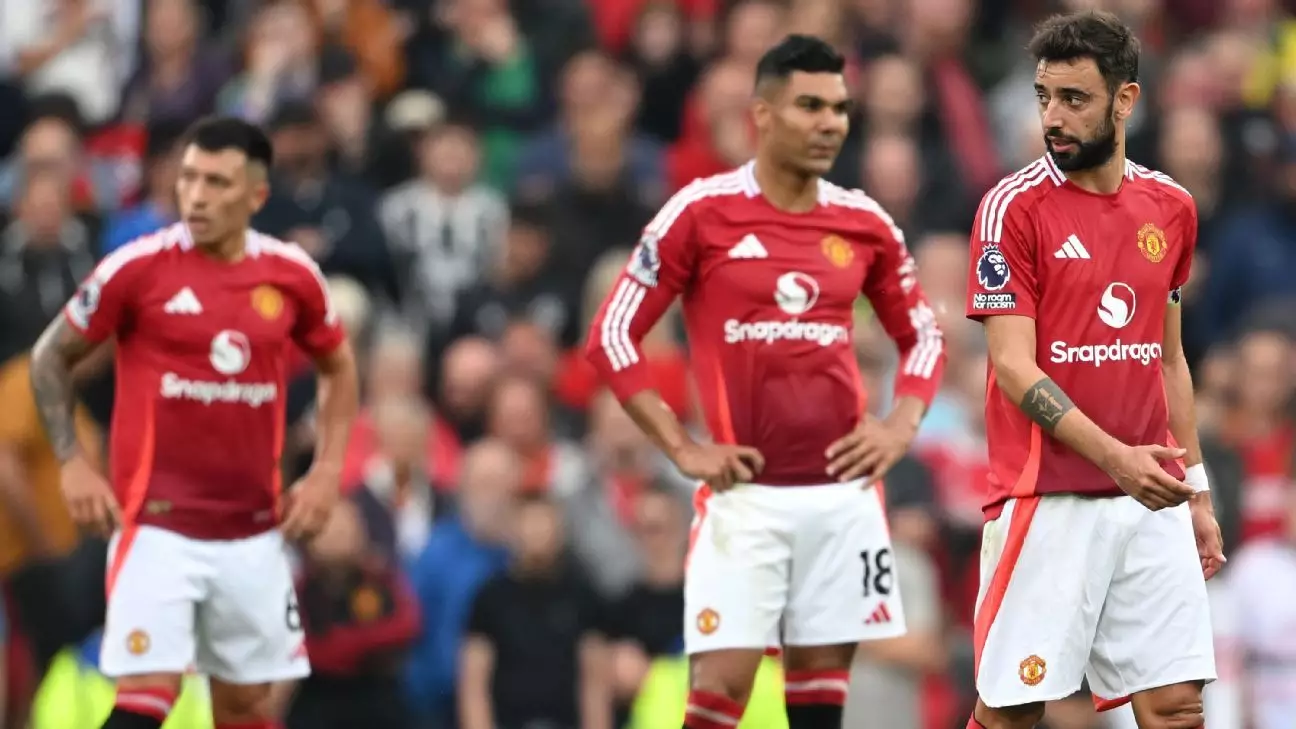As Manchester United enters the international break languishing in 14th place, it raises the alarm bells surrounding the club’s management and strategy. With a paltry two wins from their first seven matches, the disarray has sparked intense scrutiny of manager Erik ten Hag’s position. Following the minority stake acquisition by Sir Jim Ratcliffe’s Ineos Group, there is a pressing need for the club’s executives to evaluate the direction in which they are heading—and Ten Hag may find himself in the line of fire.
The upcoming board meeting led by Ratcliffe and other key figures like Omar Berrada and Dan Ashworth undoubtedly sets the stage for tough conversations regarding the manager’s future. Yet, as the club reflects on its choices, one must question the extent of Ten Hag’s accountability for these dwindling performances and the resultant lack of results.
Critiques have emerged around the core management structure at Manchester United, establishing a narrative that perceives Ten Hag as the embodiment of the club’s failures over multiple seasons. Notably, the team’s performance woes are not entirely a recent phenomenon; they have been a consistent issue that predates Ratcliffe’s substantial financial intervention. Last season culminated in an underwhelming eighth place finish, carrying with it a negative goal difference and raising serious doubts about Ten Hag’s capability to lead a club of Manchester United’s stature.
Despite such red flags, the team’s surprise FA Cup triumph against Manchester City last season offered Ten Hag a temporary reprieve. However, this win exemplifies a classic symptom of a bigger problem: inconsistency. Ratcliffe’s reluctance to dismiss Ten Hag without a well-defined replacement only highlights the indecision that seems to have enveloped the club’s higher echelons and exacerbated United’s issues.
One area where Ten Hag’s influence cannot be ignored is recruitment. The decision to spend £85 million on Ajax’s Antony has proven to be a significant blunder, as his performances have consistently fallen short of expectations. Furthermore, the signing of Mason Mount for £55 million, despite his injury-prone history, raises questions about the managerial foresight involved.
Perhaps the most glaring misstep has been the choice of Rasmus Højlund as the focal point for United’s offensive strategy. Overlooking established talents like Harry Kane and Ollie Watkins, who had been proven performers in the league, Ten Hag opted for youthful potential. Højlund’s record of just 10 goals last season stands in stark contrast to the more prolific Watkins, who not only contributed goals but also assists, significantly enhancing Villa’s performance.
It begs the question: Is long-term vision worth sacrificing current success? Given the club’s need for immediate results in a competitive landscape, focusing solely on potential can be a perilous gamble.
One of the most pressing concerns for Manchester United is Ten Hag’s failure to adapt tactically. The same defensive frailties that plagued last season have persisted into this campaign, significantly impacting the team’s results. The manager’s rigid tactical approach has made United an easy target for opponents, evident in their alarming inability to maintain a solid defense.
Compounding this issue is the poor communication and ineffective management of players. Marcus Rashford has notably suffered under Ten Hag’s critical eye, with public comments undermining the player’s confidence at crucial moments. Despite Rashford displaying promise early in the season, Ten Hag’s decisions to bench him or publicly scold him have not helped. An understanding of how to motivate and manage players is integral for success, and Ten Hag’s apparent lack of adaptability in this regard continues to raise eyebrows.
The financial situation at Manchester United adds another layer of complexity to these challenges. The need to comply with profit and sustainability guidelines has constrained United’s ability to react decisively when problems arise, as seen in the delayed acquisition of Manuel Ugarte, whose arrival came too late to resolve immediate midfield weaknesses. This scenario underscores the urgency for astute management that can circumvent financial roadblocks while still bolstering the squad.
Drawing parallels with Sir Alex Ferguson’s tumultuous beginnings is tempting, given Ferguson’s ability to transform a struggling squad into champions. However, United’s current circumstance reflects a confusion of priorities and a disconnect among management layers, raising doubts about whether they have the right leadership to lead them back into the upper echelons of English football.
In a league marked by fierce competition, Manchester United urgently needs a clear vision and decisive action. The current environment calls for reflection, assessment, and a willingness to make significant changes. Whether that involves replacing Erik ten Hag or bolstering the executive team behind him, the reality is that the status quo is no longer sufficient.
With history proving that waiting out a struggling manager rarely results in success, Manchester United must find a way to address its problems head-on. Failure to do so could not only prolong their suffering but also solidify their status as a team adrift in a sea of mediocrity. The time for decisive action is now.
